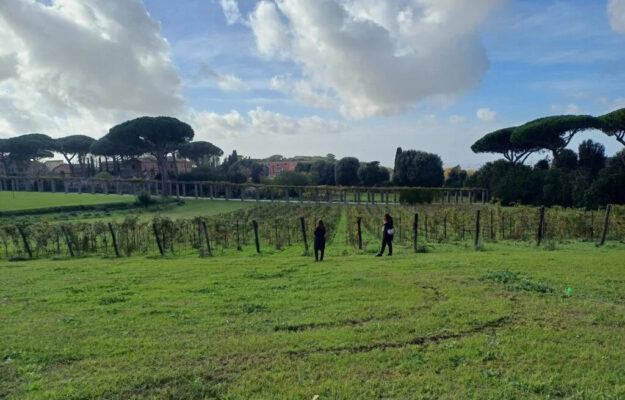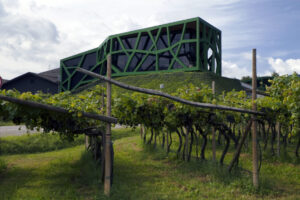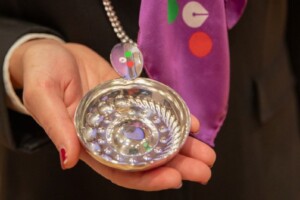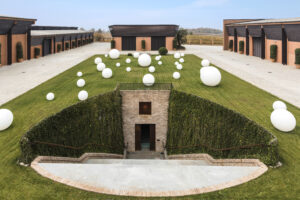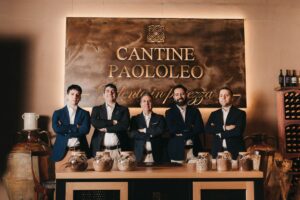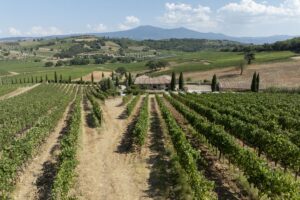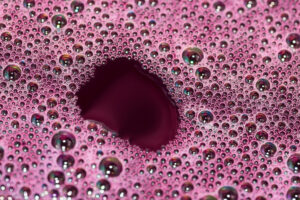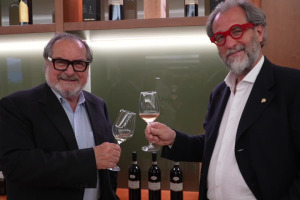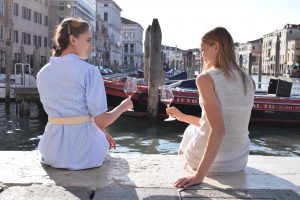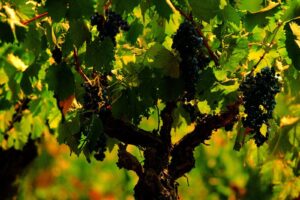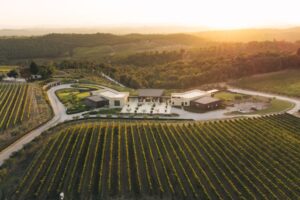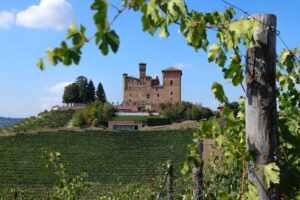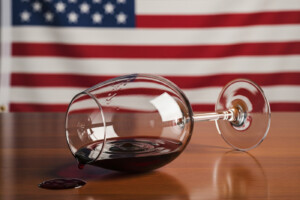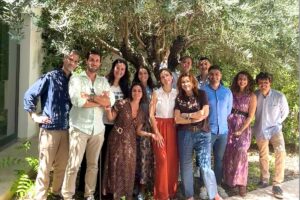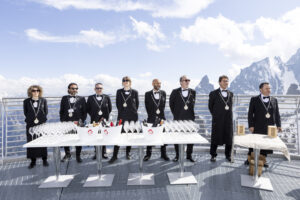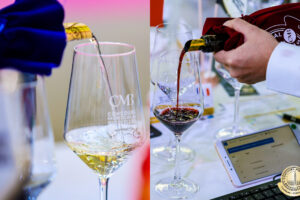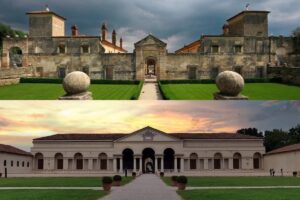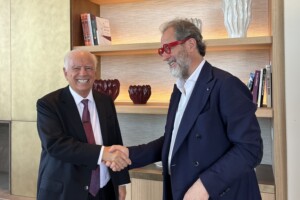An excellent, sustainable, ethical and fair trade wine will be produced in the extraordinary setting of the Pontifical Villas of Castel Gandolfo, the Papal summer residence at Castelli Romani. The three pillars of the Borgo Laudato Si project include aspects such as education in integral ecology, circular and generative economy and environmental sustainability, which are distinctly carried out by the Centro di Alta Formazione Laudato Si (CeAF-LS). Pope Francis established the entity on February 2, 2023. The Borgo extends into the residence of Castel Gandolfo, and it aims to give a concrete, and therefore a practical sign, through ecological conversion and applying the principles illustrated in the Encyclical Laudato Si’. The extraterritorial area is 55 hectares, including 35 hectares of gardens as well as 20 hectares of agricultural land and farm, greenhouses and service buildings, which are the object of a project of protection and development of ideas. Biodiversity is the core of the project as well as harmonious interaction between human beings and nature, and education that aims towards inclusivity and accessibility to all, paying particular attention to people in vulnerable conditions. It is a place of agriculture and, therefore, also wine. Just recently, the work of research, study and planting the Vigna del Borgo Laudato Si’, and the characteristics of the wine that will be produced from the grapes planted in the agricultural land of the Pontifical Villas, was presented. For the occasion, the Holy Father gave a speech to the members of the Laudato Sì Higher Education Center, dedicating admirable words to wine, as it has a fundamental value for Christians, in addition to the fact that there are many monasteries, abbeys, hermitages and convents where, alongside religious and cultural knowledge, in the most important wine territories of Italy, where still today vineyards are kept and wine is produced.
“The development of a new vineyard for the production of wine has found its place in the agricultural project of the Borgo”, the message of Pope Francis continued, “it will be the combination of tradition and innovation, and as people say, a “trademark” of the Borgo. The Higher Education Center has therefore employed consultancy of some of the topmost experts, because the intention is to aim for excellence. It is very important not to remain “average”, because from average you go to mediocrity. Always aim for excellence. I was particularly pleased by the fact that for cultivation and agricultural production - and especially for the vineyard - a significant use of manpower has been indicated. This responds to the intention, agreed at the beginning, to commit to restoring good and fruitful relationships between the human family and Creation, through work that takes care of and protects what the Creator has entrusted to us”.
Technically, as a note from the Laudato Si Center explained, the experts appointed by the University of Udine, coordinated by Professors Enrico Peterlunger and Roberto Zironi, have planted the Laudato Si Vineyard, made up of varieties of vines of diverse origins and provenances, that will be capable, together, of constituting a wine whose composition symbolizes a communion in diversity. The Laudato Si Vineyard Project is the result of research that has allowed us to choose varieties of vines resistant to various diseases. These varieties were selected at the University of Udine by researchers who worked in collaboration with the Institute of Applied Genomics and the Rauscedo Cooperative Nurseries.
Experts and professionals in the sector that have cutting-edge technical knowledge are also collaborating on the development of the vineyard, together with workers who manage the land and the vine, by sharing centuries-old knowledge, centuries-old traditions and learning new work techniques. They are the members of the Commissio de Fructu Vineae, Enrico Peterlunger, Roberto Zironi, Francesca Vimercati, Luigi Moio, Laurent Torregrosa, Antonio Dionisio Morata Barrado, Hans R. Schulz and Jancis Robinson. The aim, by osmosis of ancient knowledge and innovative knowledge, is to create a high-quality wine, through respect for the environment, and care in every phase of its production. The vineyard thus becomes a tangible example of how to put into practice an agriculture that is beneficial to the environment, the territory, vineyard workers and wine consumers, generating beauty through work.
Copyright © 2000/2025
Contatti: info@winenews.it
Seguici anche su Twitter: @WineNewsIt
Seguici anche su Facebook: @winenewsit
Questo articolo è tratto dall'archivio di WineNews - Tutti i diritti riservati - Copyright © 2000/2025










